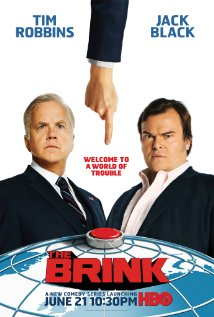The novel tells the story of three interconnected wealthy Singaporean families. The members of these families are flung out across the globe but are all preparing to reconvene in Singapore for the "wedding of the century" between a wealthy heir and a supermodel. On the one hand, you have the story of Nicholas Young, a modest man who has built a life for himself in New York City as a sedate Economics professor and is living in a small loft in the Village. He is deeply in love with Rachel Chu, a fellow professor who grew up in California and has absolutely no clue that her unassuming boyfriend is a member of one of the most staggeringly wealthy families in Singapore.
On the other hand, you have Nick's cousin, Astrid, a woman who shops in Paris every season to buy millions of euros worth of haute couture, and yet has always flown in the face of family tradition. She unexpectedly married an "ordinary" man who spends all his time slaving on his startup company because he doesn't want to accept a penny of Astrid's family money and is determined to support his wife and son himself. Clearly that's a recipe for drama.
On the other hand, you have Nick's cousin, Astrid, a woman who shops in Paris every season to buy millions of euros worth of haute couture, and yet has always flown in the face of family tradition. She unexpectedly married an "ordinary" man who spends all his time slaving on his startup company because he doesn't want to accept a penny of Astrid's family money and is determined to support his wife and son himself. Clearly that's a recipe for drama.
And then there are all the gossipy matriarchs who exist in the bloodthirsty arena of Singaporean society. These women are obsessed with wealth and status, forcing their children into appropriate careers and marriages so that they can carry on the stuffy family line in the manner to which it has been accustomed. This novel is a tale of the struggle between familial obligation and individual freedom, the old guard versus the new, class privilege, nationalism, and everything else in between. Putting aside those grand themes, however, this is simply a well-written, keenly observed, and blisteringly funny book. It serves as a brilliant introduction to the decadence of Singaporean high society, and while the locale might be foreign to many, the people are recognizable as the pompous upper classes that abound throughout the world.
I also dare you to read Crazy Rich Asians and not end up ordering take-out from the nearest Asian restaurant. Singaporeans are notorious foodies and the novel is crammed with discussions and descriptions of delicacies from all over the Asian diaspora. Kevin Kwan has a knack for describing things in vivid, nuanced detail that can help you understand this world and empathize with its inhabitants, no matter how different they are from you. The sequel, China Rich Girlfriend, came out this summer, so I will certainly be picking up a copy to follow the further exploits of these crazy rich people. You should do the same.

